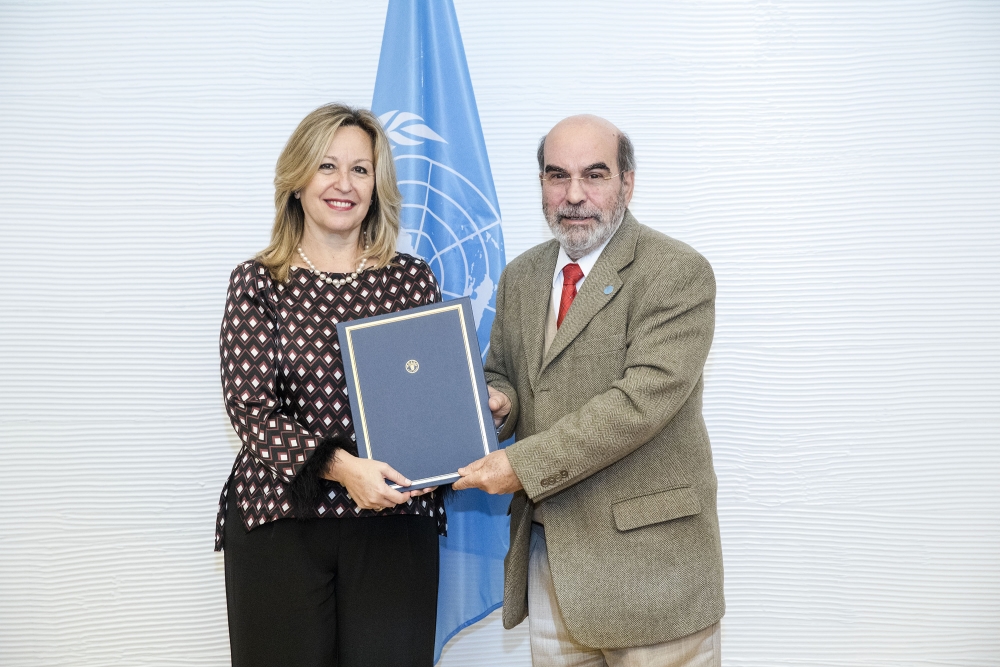Smartphones are helping farmers in Latin America fight climate change

Thousands of smallholder farmers in Latin America are set to benefit from a new initiative that will enable them to improve their coping strategies for climate change.
A three year agreement between the Food and Agriculture Agency and Spanish telecommunications giant Telefonica was announced yesterday. The collaboration will provide farmers with vital information such as weather forecasts and early warnings via smartphones, as well as online training and equipment to help improve water usage.
Telefonica is one of the world’s largest telecommunications companies and have agreed to use their cutting edge technologies for agricultural development, food security, nutrition and to prepare farmers for extreme weather.
The agreement was signed by FAO General, José Graziano da Silva, and Telefonica’s Global Director of Public Affairs Strategy, Trinidad Jiménez. The project aims to increase innovation, digitalisation and data analysis among Latin American farmers to improve their livelihoods and resilience.
“We hope that our data, knowledge and technologies will contribute to the development of our society and digitalisation will add value to organizations like FAO that make decisions based on data as a transforming element," said Trinidad Jiménez.
A pilot project in El Salvador and Colombia will help farmers maximise their water project and is similar to Telefonica’s existing project in Chile.
The project in Chile covers 17,000 hectares and four regions; it uses specialised equipment whose sensors measure humidity and solar activity and send data via a low cost wireless network.
"This partnership will help us face one of the greatest current challenges in the fight against hunger, poverty and the effects of climate change in agriculture. Access to reliable information, including that related to changing weather patterns, is essential to empower farmers, especially those who live in developing countries,” Graziano da Silva said.
FAO added that the project would be replicated through Central America’s ‘dry corridor’ which runs through Guatemala, El Salvador, Honduras and Nicaragua. The region is home to 10.5 million people and is particularly vulnerable to the effects of climate change and extreme weather.
Once the data is processed the farmers will receive recommendations specific to their crops through their smartphones, estimates suggest that this will lead to 20% a reduction in water usage.
The programme will use ‘big data’ to analyse how climate change affects population movements, particularly in areas effected by El Niño and La Niña.
Farmers will also be able to learn about food systems, nutrition and agricultural development.
There are approximately 460-500 million smallholder farmers across the world, many of whom have little resources in terms of labour, education, training and finance. This initiative reveals a promising future for small scale farmers and the challenges they face due to climate change.
Across Asia and Africa, which are also at significant risk due to climate change, smallholder farmers produce to 80% of the food consumed.
If you’d like to stay informed on the latest updates in aid and development, please sign up for the AIDF newsletter.
Image credit: FAO















